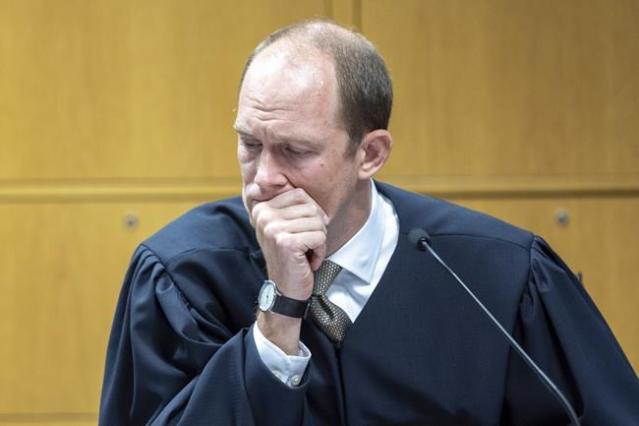Newsmatro

WASHINGTON — A federal appeals court has remanded a case back to the U.S. District Court to determine the extent of access that Justice Department special counsel Jack Smith should have to the contents of Rep. Scott Perry’s cellphone. This move is part of an ongoing investigation into attempts to overturn the 2020 election by former President Donald Trump.
Jack Smith issued a subpoena for Rep. Scott Perry’s phone due to allegations that Perry, a Republican from Pennsylvania, had urged Trump to pursue baseless claims of election fraud and reject electoral votes cast for President Joe Biden from his state and others.
However, Perry challenged the subpoena, contending that his phone should be considered an extension of his congressional office, and thus protected from executive branch investigation by the Constitution’s speech and debate clause.
In a sealed 29-page ruling, a three-judge panel from the D.C. Circuit Court of Appeals unanimously sent the case back to U.S. District Judge Beryl Howell. The panel instructed Judge Howell to apply the appropriate standard for Perry’s communications with individuals in the executive branch or those outside the federal government.
Both parties involved in the case have been directed to submit written arguments by September 19 regarding the potential unsealing of documents related to the case.
The three judges on the panel are Gregory Katsas and Neomi Rao, who were appointed by Trump, and Karen Henderson, appointed by George H.W. Bush.
Rep. Scott Perry, who serves as the head of the House Freedom Caucus, strongly criticized the FBI’s seizure of his phone when the search was announced in August 2022, characterizing it as “banana republic tactics.”
Notably, Perry was not indicted alongside Trump in the federal case that alleged a conspiracy to defraud the country and obstruct Congress in the counting of Electoral College votes.
During Jack Smith’s investigation, Judge Howell ruled that 2,055 records could be disclosed, while 161 records were appropriately withheld. Perry had sought to prevent the release of all records, but Judge Howell determined that the records were not essential to his legislative considerations.
The House committee that investigated the January 6, 2021, Capitol attack found evidence suggesting that Perry had attempted to aid Trump in overturning the election results. Perry introduced Jeffrey Clark, a former assistant attorney general, to Trump after the 2020 election. Clark has been indicted, along with Trump, on charges related to his drafting of a letter urging state legislative leaders to reject electoral votes for President Joe Biden based on unfounded concerns about election fraud.
Perry’s involvement extended to texting Mark Meadows, then White House chief of staff, in late December 2020, urging the elevation of Jeffrey Clark within the Justice Department. While Trump contemplated appointing Clark as attorney general in early January 2021, this idea was ultimately abandoned after significant objections from top lawyers within the Justice Department and the White House counsel’s office.
Following the January 6 riot, Perry reportedly reached out to the White House to seek a presidential pardon, as indicated in the committee’s final report. Perry, however, refused to testify before the committee.
During oral arguments in February, Perry’s attorney, John Rowley, argued that the cellphone should be treated as an extension of the lawmaker’s office, thus deserving protection from investigation. In contrast, Justice Department attorney John Pellettieri contended that constitutional protections should be limited to a lawmaker’s deliberations related to legislative purposes, excluding communications outside the realm of Congress.